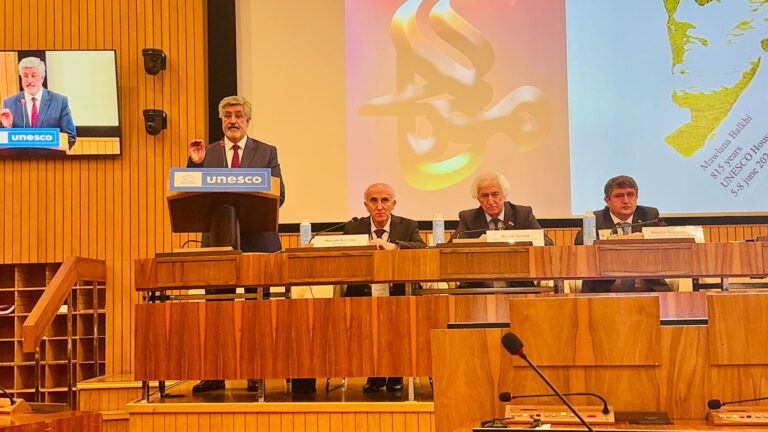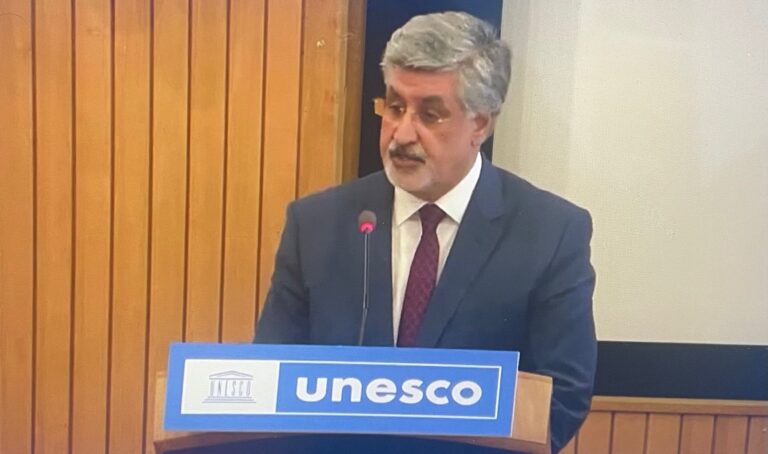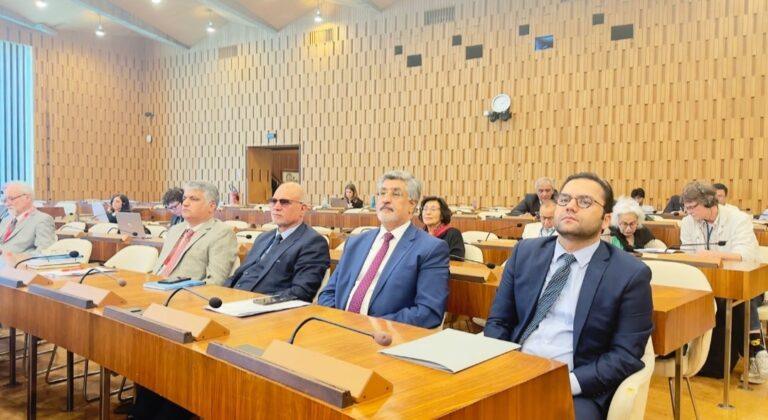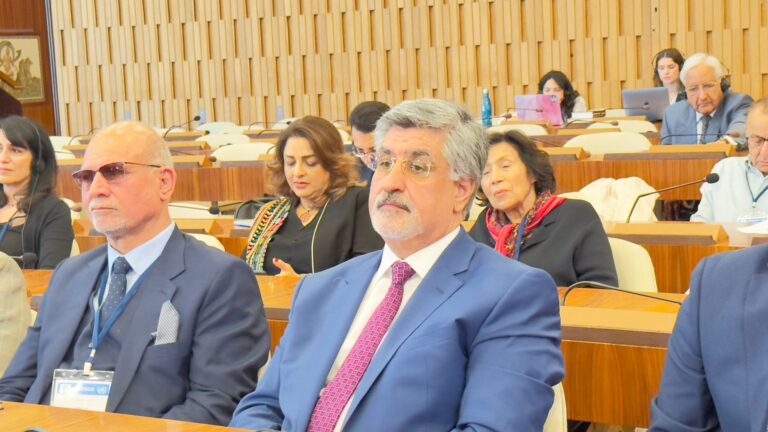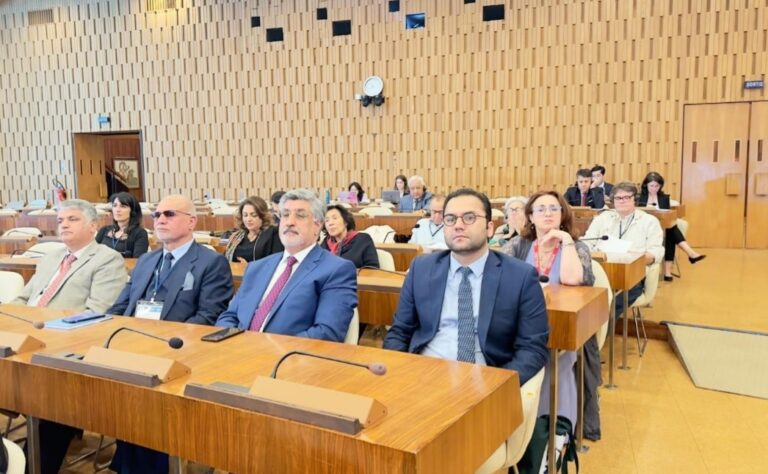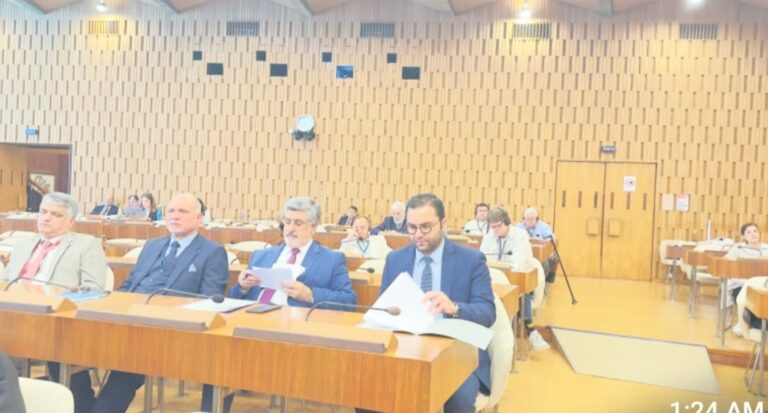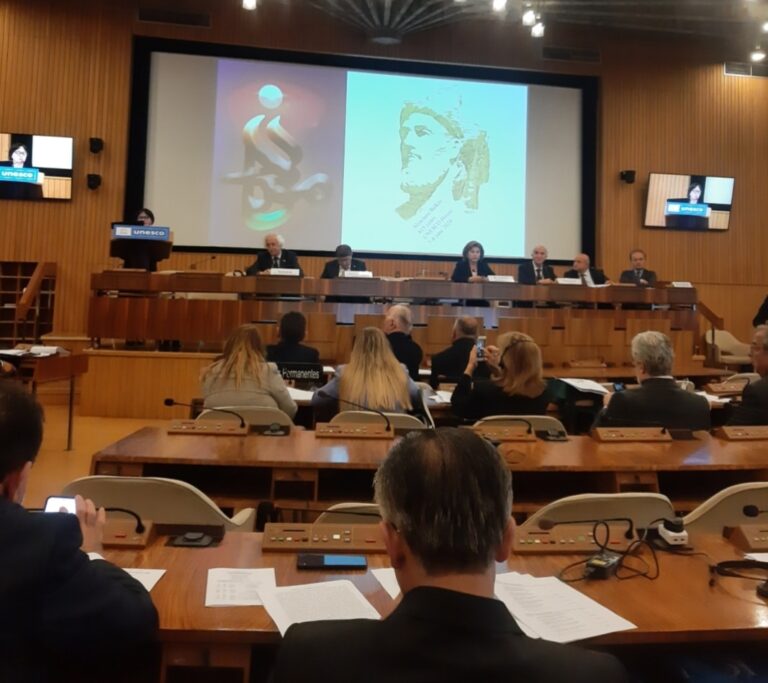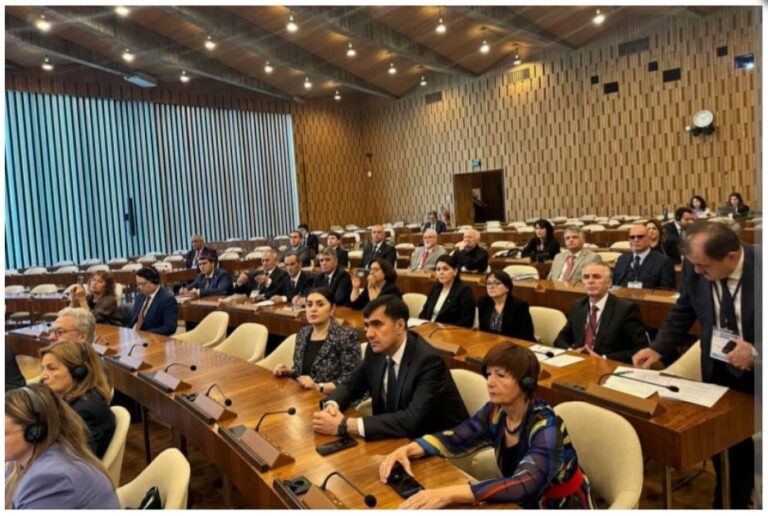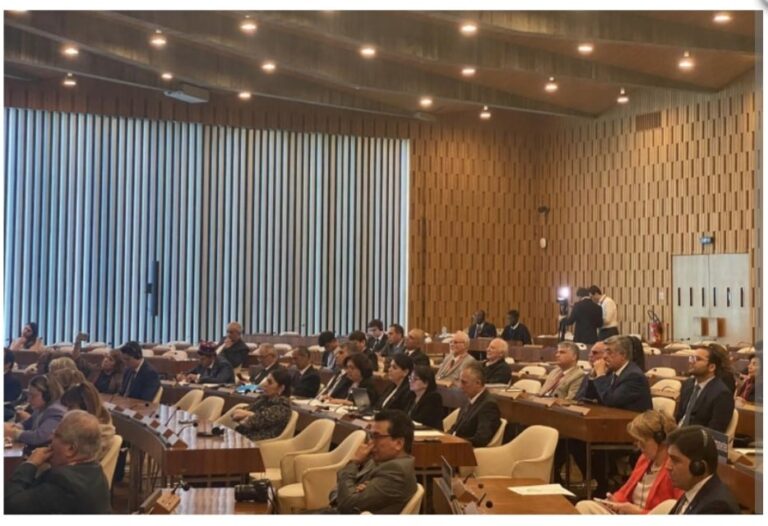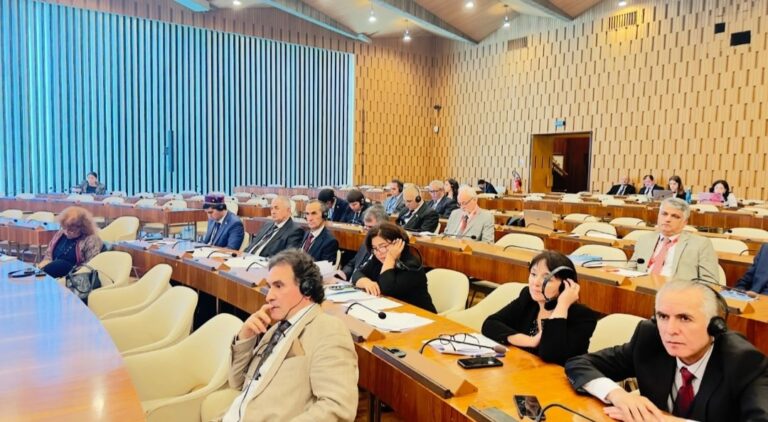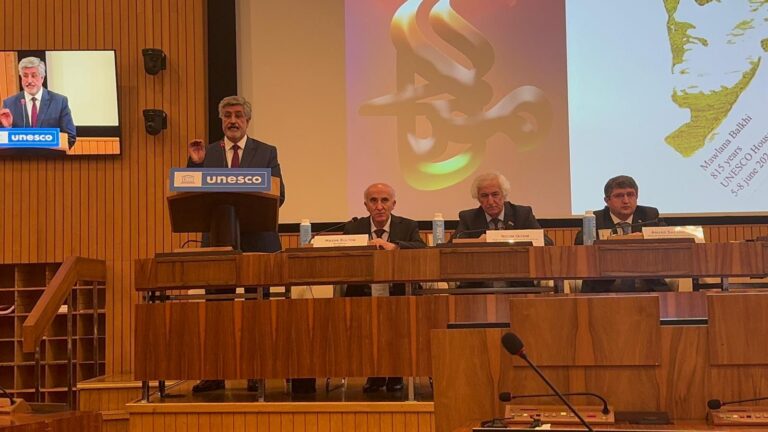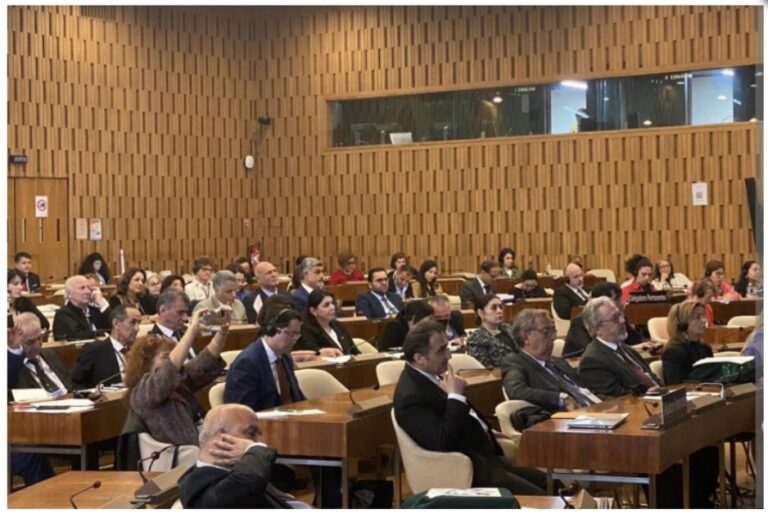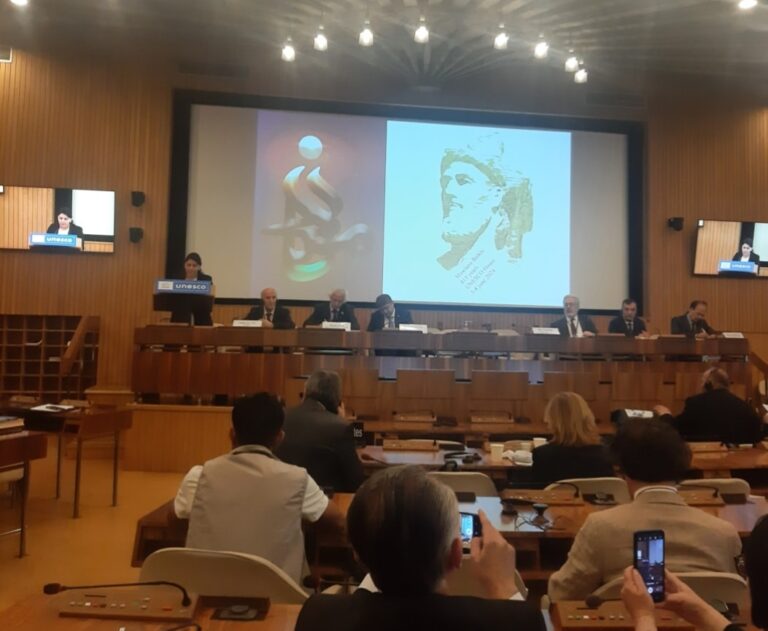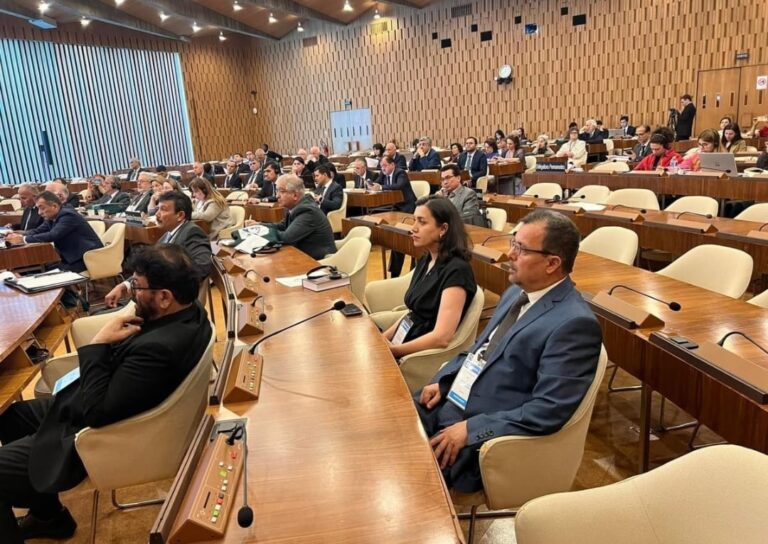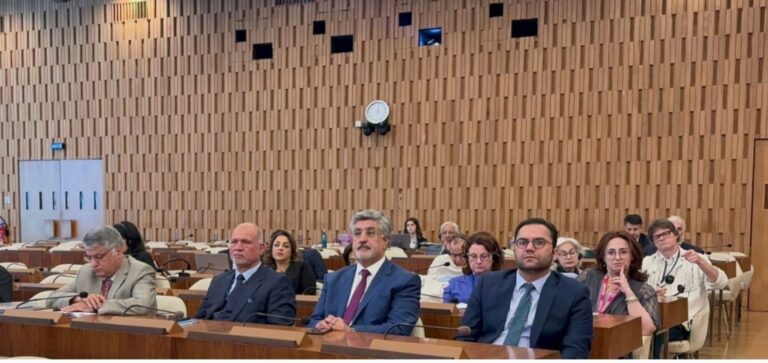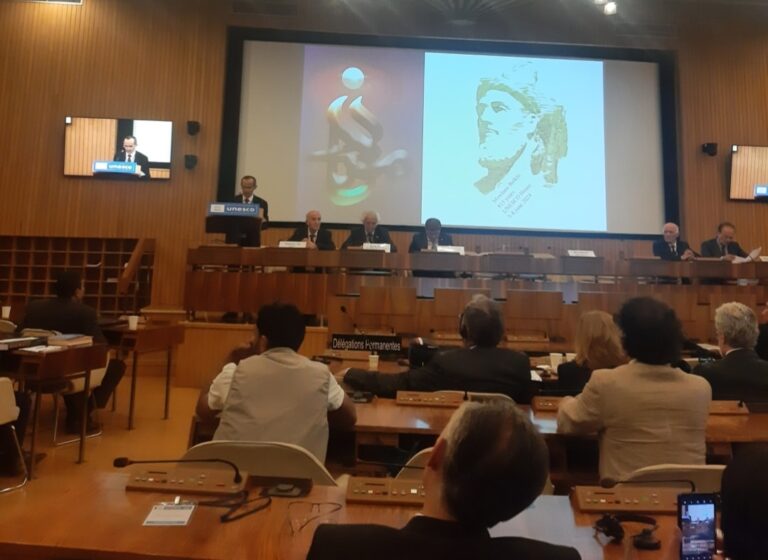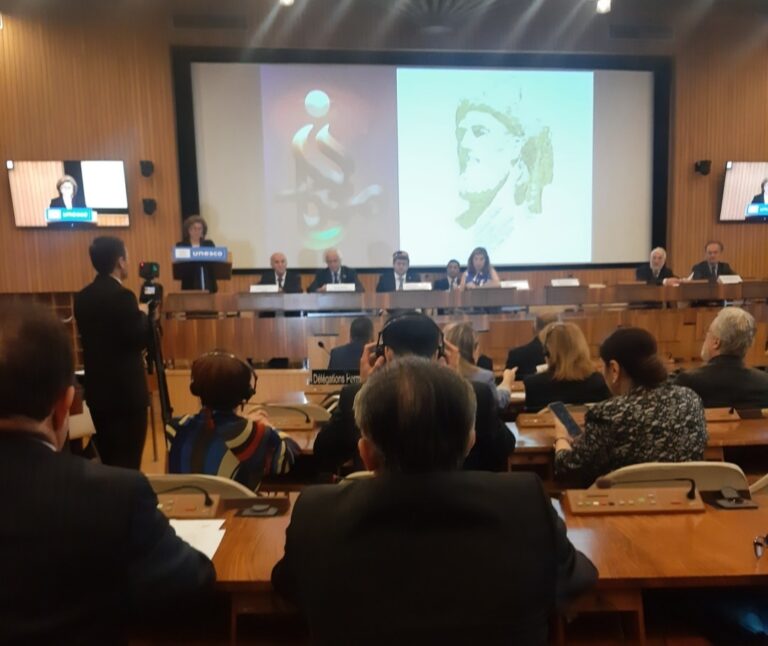At the international scientific conference “The Contribution of Rumi Jalaluddin Muhammad Balkhi to the Expansion of Global Culture” held at UNESCO headquarters in Paris, “World Respect for Others Day” was endorsed.
Paris, June 7, 2024 The international scientific conference on “The Contribution of Rumi Jalaluddin Muhammad Balkhi to the Expansion of Global Culture” was organized by UNESCO in collaboration with the Republic of Tajikistan and the Rudaki Association in France. This conference, attended by distinguished scholars and researchers from various countries around the world, provided an opportunity to discuss and exchange views on Rumi’s thoughts. Professor Sayed Hussain Eshraq, the founder of Nabras, was also invited to this conference, where he presented his views during a speech.
In his speech titled “The Place of the Other in Rumi’s Anthropology,” he examined the role and importance of the “Other” in Rumi’s thoughts, stating that Rumi can be considered one of the prominent spokespersons of the cultural conscience of our civilizational sphere. He is one of the renowned proponents of “humanity” in the realm of human culture and civilization. He further explored whether Rumi’s message is still effective in today’s time and if his teachings can be utilized in the complex modern era. He explained that Rumi’s thought is a multifaceted prism in which diverse colors of “knowledge” and “life” can be observed. Additionally, his paradoxical and symbolic linguistic regime, along with his musical skill in speech, has been used to promote “global reconciliation” and highlight his view of the “Other.” According to Professor Eshraq, Rumi’s anthropology values the human not as a social construct but with an existential perspective, speaking of the existential relationship between the “self” and the “Other.” Therefore, his ontology indicates that the human soul cannot be conceived without considering the existence of the “Other.” Critics of modernity’s one-sidedness have also concluded that the Kantian system’s lack of attention to the central position of intersubjectivity has marginalized the concern for the “Other.” Referring to thinkers such as Levinas, Martin Buber, Gabriel Marcel, Martin Heidegger, and Mikhail Bakhtin, he noted that those seeking solutions to the crisis of the one-dimensional human in the modern era undoubtedly find Rumi’s messages appealing. In his speech, he reminded the audience that Rumi, in addition to his spiritual cultural influence in the East, has also impacted the cultural realms of the Western world. For this reason, the German poet Hans Meinke described Rumi as “the only hope for the current dark era,” Nicholson called Rumi “the greatest mystical poet of all time,” Coleman Barks believed that “Rumi has conquered America,” and Phyllis Tickle said, “Rumi’s popularity in the United States is a matter of our great spiritual hunger.” Professor Eshraq concluded by emphasizing that Rumi’s message is still effective in the contemporary era and that the place of the “Other” in his anthropology can address the spiritual and epistemological crisis of our time. Rumi’s message helps us emphasize the importance of forming a dialectical relationship between the “self” and the “Other” within the framework of “intersubjective” or “intercultural” concepts. This indicates that his anthropology is compatible with our era and can assist us in seriously reconsidering our prejudices through dialectical dialogue and thinking more deeply about the “religion of love.” He reminded the audience that today’s world, despite the significant time gap from Rumi’s era, still needs to promote his anthropology. He therefore emphasized that Rumi inspires human societies to prioritize “intersubjectivity” over “subjectivity” for the flourishing of dialogical capacities between the “self” and the “Other.” This process helps realize the “event of understanding as a game.” Thus, Rumi’s anthropology values the “Other” and has much to offer to contemporary humans and modern societies. Rumi, like an interpretable text, can motivate each audience to engage with his thoughts uniquely. However, it is certain that when the audience establishes a deeper connection with Rumi’s poems and thoughts, they will discover new horizons in his views and theories. The dynamism and fluidity are essential features of Rumi’s expansive and hermeneutical thoughts, which is why the discussion of “the need for Rumi” is significant for researchers. At the end of Professor Eshraq’s speech, he proposed that Rumi’s birthday be commemorated as “World Respect for Others Day.” This proposal was put to a vote at the end of the conference and was unanimously approved, with UNESCO set to follow up on the administrative process.


